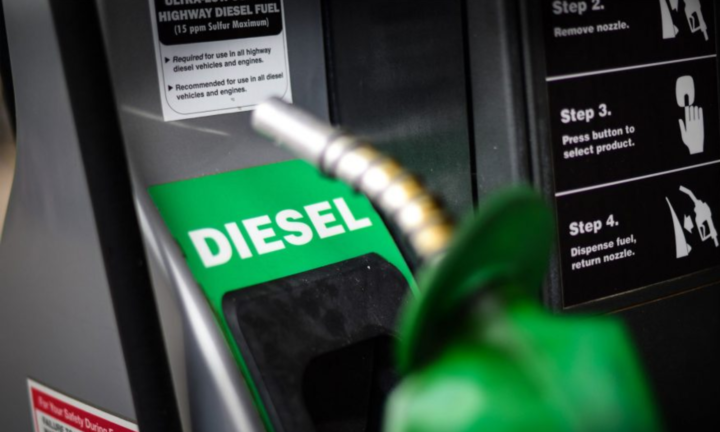In October 2023, the average retail price of diesel in Nigeria experienced a significant surge, reaching N1004.98 per litre compared to the N890.80 recorded in September of the same year. This substantial increase represents a month-on-month escalation of 12.82%. On a year-on-year basis, the average diesel price soared by 25.45%, escalating from N801.09 to its current figure.
When conducting a state-by-state comparison of diesel prices, a notable trend emerged, with the three states boasting the highest average prices all situated in the North Central zone of the country. Plateau State led the pack with an average price of N1150.00 per litre, followed closely by Nasarawa State at N1138.00 and Benue State at N1091.67. Conversely, the three states offering the lowest diesel prices were Rivers State at N824.44, Borno State at N827.27, and Kebbi State at N845.00.
Analyzing the breakdown of the average price of Automotive Gas Oil (Diesel) by zone, the North Central Zone emerged as the region with the highest price, registering at N1090.69. In contrast, the North-East Zone reported the lowest price at N947.32 based on the zonal analysis.

The ramifications of the rising diesel prices are felt across various sectors of Nigeria’s economy, which heavily relies on alternative energy sources from private individuals and businesses rather than the national grid. Manufacturers, in particular, have voiced concerns, citing that the cost of sourcing alternative energy contributes approximately 30% to 40% of their overall production costs. In 2022, the Director-General of the Manufacturers Association, Mr. Segun Ajayi-Kadir, disclosed that manufacturers spent around N144 billion on energy sourcing in that year alone.
The increase in diesel prices directly translates to elevated production costs, subsequently leading to inflation and a reduction in consumer purchasing power. The economic ripple effect is palpable, affecting not only manufacturers but also consumers who bear the brunt of increased prices for goods and services.
Several factors contribute to the recent surge in diesel prices. One primary factor is the reintroduction of the 7.5% Value Added Tax (VAT) on diesel in June. This decision by the federal government, aimed at bolstering revenue, drew criticism, particularly from manufacturers who viewed it as an additional burden on their operations.
Furthermore, the continued weakness of the naira in the market has played a pivotal role in the escalating diesel prices. The Central Bank of Nigeria’s (CBN) reforms on the exchange market led to a “controlled devaluation” of the naira, resulting in a nearly 40% loss of its value since June. This substantial depreciation has directly contributed to the upward trajectory of diesel prices, soaring from N815 per litre in June to their current valuation.
As Nigeria grapples with the multifaceted challenges influencing diesel prices, stakeholders across various sectors are closely monitoring the situation. The impact on manufacturing, inflation rates, and overall economic stability underscores the need for strategic interventions to address the root causes of the escalating diesel prices and mitigate the adverse effects on the nation’s economy. Infostride News will continue to provide updates and in-depth analyses on developments in this critical aspect of Nigeria’s economic landscape.
Support InfoStride News' Credible Journalism: Only credible journalism can guarantee a fair, accountable and transparent society, including democracy and government. It involves a lot of efforts and money. We need your support. Click here to Donate
